“We created a society thanks to civil society”
The president of the organisation, historian Franziska Davies, addressed the guests in Ukrainian: “This is only the second time I have spoken publicly in Ukrainian. The first time was last year in Munich. I am very excited, but I would like to sincerely thank everyone who is here today. We created this association thanks to a civil society initiative. People understood that now is the time to strengthen German-Ukrainian relations.”
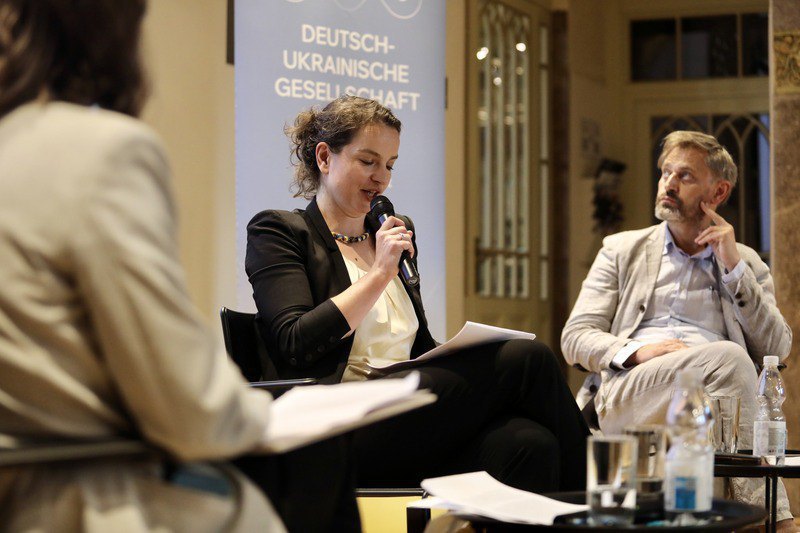
Davies said that the organisation already has more than 500 members. Its goal is to spread knowledge about Ukraine in Germany, shape informed public debate, and support Ukraine in its war against Russian aggression.
Historical parallels and the “Russian complex”
One of the key topics was the understanding of historical relations between Germany, Russia and Ukraine. Davies emphasised: “The European tradition of German-Russian colonialism dates back to the 18th century. Political and cultural views were directed towards Moscow and St Petersburg, not Kyiv or Vilnius. The scale of the defeat of German policy towards Russia and Ukraine by 2022 is still far from being understood.”
She said candidly that she personally discovered Ukraine, its culture and social processes during the Revolution of Dignity, and came to realise that the “Russian perspective” she had been taught was far from the truth. Many of her compatriots, especially those from the east of Germany, shared the same perception that Ukraine was simply part of the Russian sphere.
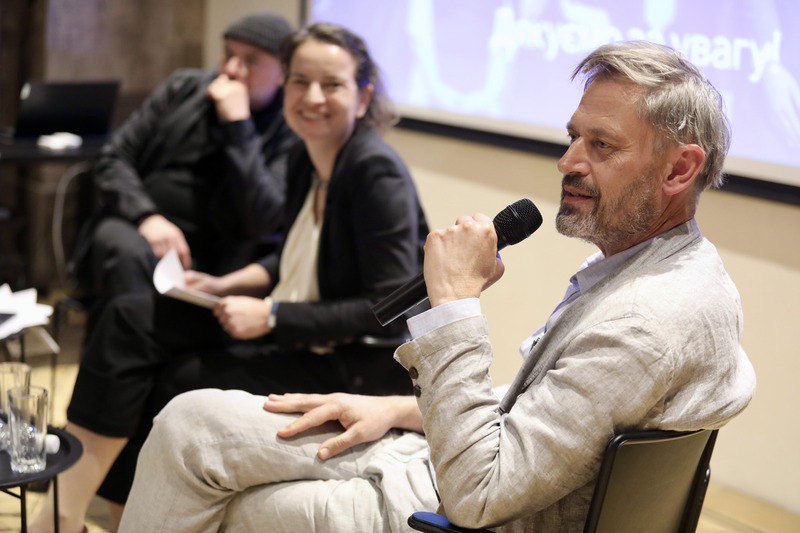
Essayist and translator Yurko Prokhasko continued this line of thought, pointing out the danger of remaining silent about one’s own imperial practices: “If one’s own imperialism is not sufficiently understood or is denied, there is a tendency to perceive other empires as equal. This leads to an excessive understanding of Putinism and the relegation of the universalism of human rights and democracy to the background.”
“Russians even use history as a weapon”
Philosopher Vakhtang Kebuladze emphasised that Russian imperialism in the 20th and 21st centuries was often hidden behind other forms of power. For example, the Soviet Union was also a form of Russian imperialism.
“Russians have always rewritten history to make their own crimes look heroic. They even use history as a weapon. This was the case before the great invasion of 2022, when Putin used a distorted interpretation of the past to justify his aggression.”
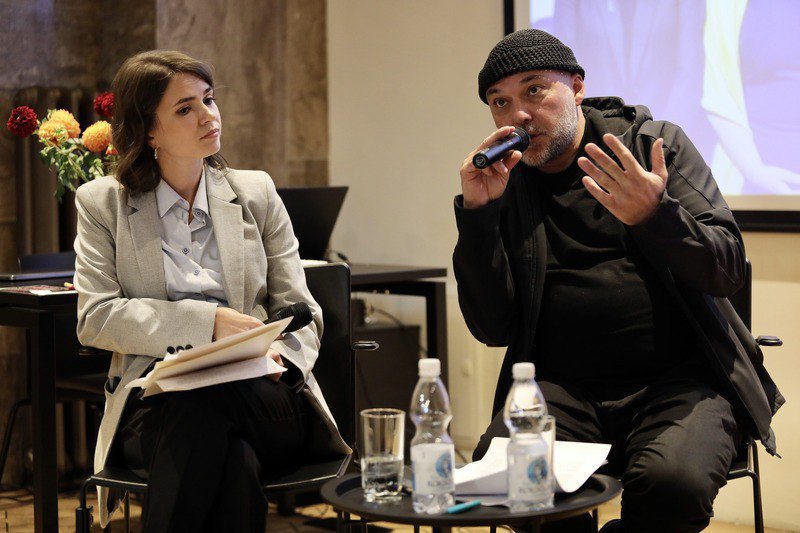
He explained the difference between German and Russian Nazism: “German Nazism was exclusive in nature – superhumans and subhumans. Russian Nazism was inclusive: if Ukrainians agreed to be ‘younger brothers’, they were allowed to exist. If not, they were ready to be destroyed.”
Translation as a tool for dialogue
It was symbolic that on this evening, the German participants spoke Ukrainian, and the Ukrainian participants spoke German. This underlined the idea of translation not only as a linguistic tool, but also as a cultural gesture of trust and openness. The moderator of the evening, journalist and writer Olesya Yaremchuk, noted: “For us, this evening is a starting point for deeper mutual understanding. We wanted to create a space where Germans and Ukrainians do not just listen to each other, but try to speak their partner’s language. This is symbolic and very important.”
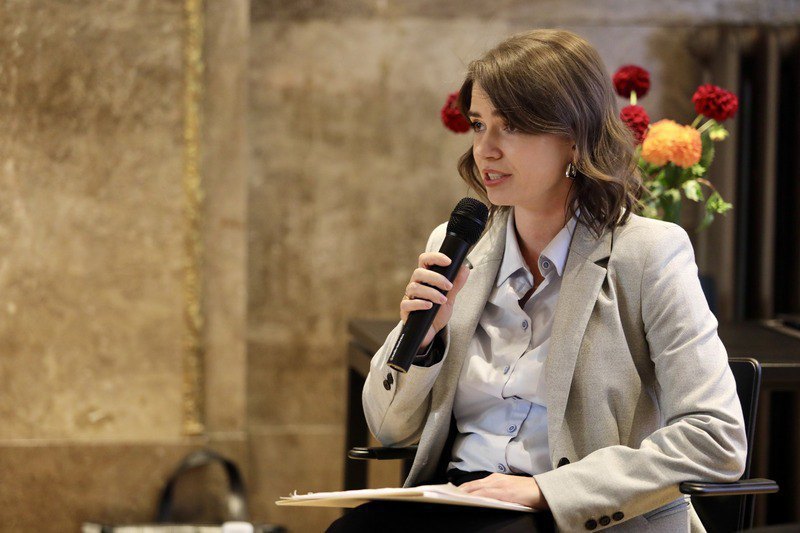
A look into the future
The participants agreed that the current war is not only Ukraine’s struggle for survival, but also a matter for the whole of Europe. It concerns the security of the European Union, as well as the possibility of developing intercultural dialogue as such.
Franziska Davies summed it up: “Defending Ukraine’s independence today means defending the future of Europe.”
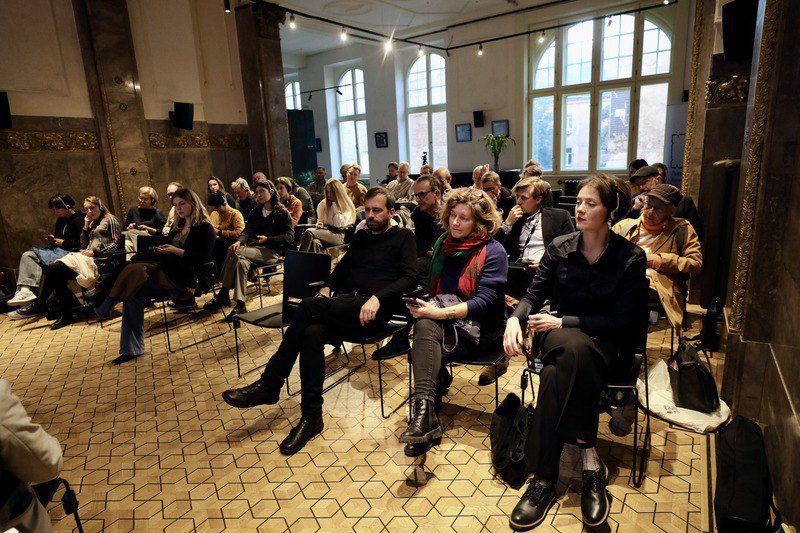
This evening in Lviv was not merely a cultural event, but an important step in the formation of a common German-Ukrainian space for dialogue – a space where historical traumas, philosophical reflections and the practice of translation work together for a greater cause: mutual understanding and a shared future on the European continent. It was also an opportunity to overcome stereotypes and distorted perceptions of Germany in Ukraine and vice versa.
The event was organised by the Deutsch-Ukrainische Gesellschaft (DUG) and INDEX: Institute for Documentation and Interaction.









